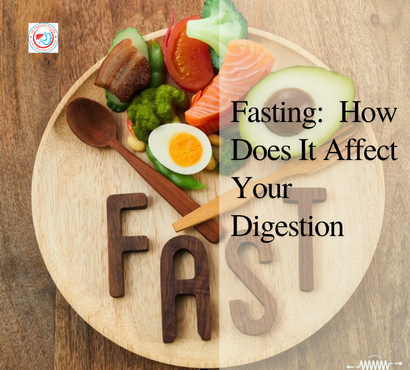In recent years, fasting has evolved from a traditional ritual into a global health trend. From intermittent fasting (IF) to prolonged fasts, people are turning to food abstinence not just for spiritual reasons, but also for better metabolism, weight loss, and even digestive health. But how exactly does fasting affect your gut? Let’s explore the fascinating link between fasting and digestion.
What is Fasting?
Fasting refers to voluntary abstinence from food and sometimes drinks for a specific period. It has been practiced for centuries in various cultures for religious, spiritual, and health reasons.
Common Types of Fasting:
- Intermittent Fasting (IF): Alternating periods of eating and fasting (e.g., 16:8, 5:2).
- Time-Restricted Eating (TRE): Eating within a limited window of time (e.g., 10 AM–6 PM).
- Alternate-Day Fasting (ADF): Fasting every other day.
- Prolonged Fasting: Fasting for 24–72 hours or longer under supervision.
How Fasting Affects Digestion
1. Improved Gut Rest
During fasting, your digestive system gets a break. This allows the gastrointestinal tract to focus on repair, rather than constantly processing food.
2. Enhanced Gut Motility
Fasting stimulates the Migrating Motor Complex (MMC), a pattern of electromechanical activity that cleans out the intestines. It helps prevent bacterial overgrowth and indigestion.
3. Reduced Inflammation
Short-term fasting may reduce gut inflammation by giving the immune system time to reset and lowering the production of inflammatory cytokines.
4. Gut Microbiome Reset
Fasting can improve gut flora diversity. It may help grow good bacteria like Akkermansia muciniphila, which is associated with gut lining integrity and metabolic health.
5. Improved Insulin Sensitivity
Though not a direct digestive effect, better insulin control indirectly helps digestion by reducing bloating and supporting nutrient absorption.
6. Digestive Enzyme Regulation
Fasting helps regulate the secretion of gastric juices and enzymes, preventing hyperacidity and bloating in some individuals.
Potential Digestive Benefits of Fasting
- Relief from bloating and gas
- Improved bowel movements
- Reduced symptoms of IBS (Irritable Bowel Syndrome)
- Decreased acid reflux episodes
- Better nutrient absorption due to healthier gut lining
Who Should Be Cautious?
While fasting may benefit many, it is not suitable for everyone.
People who should consult a doctor before fasting:
- Individuals with gastritis or ulcers
- Diabetics (due to blood sugar fluctuations)
- Pregnant or breastfeeding women
- People with eating disorders
- Children and teens in their growth phase
Tips for Digestive-Friendly Fasting
- Start Slow: Begin with a 12-hour fast and gradually increase.
- Stay Hydrated: Drink plenty of water or herbal teas.
- Break Fast Gently: Avoid heavy, greasy meals after fasting.
- Include Probiotics: Add fermented foods during eating windows.
- Avoid Trigger Foods: Skip processed, acidic, or overly spicy foods.
Indian Diet Tips for Effective Fasting
- Pre-Fast Meal (Suhour): Include oats, bananas, nuts, and curd.
- Break Fast (Iftar): Start with fruits or dates, followed by light dal-rice or khichdi.
- Hydration: Coconut water, buttermilk, or jeera water helps digestion.
- Herbs: Ginger, ajwain (carom seeds), and fennel can soothe the gut.
Fasting isn’t just a weight-loss strategy—it can be a digestive system reboot when practiced correctly. By giving your gut time to rest, fasting may reduce inflammation, improve motility, and support beneficial bacteria growth. However, it’s essential to listen to your body and consult your doctor, especially if you have underlying health issues.
FAQs
Q1: Can fasting worsen acid reflux?
A: In some people, long fasting hours can trigger acid reflux due to increased stomach acid. It’s advisable to break the fast with low-acid, non-spicy foods.
Q2: Is intermittent fasting safe for people with IBS?
A: It may help some IBS patients by reducing bloating and irregular bowel movements, but results vary. Always consult a gastroenterologist.
Q3: What is the best fasting method for digestion?
A: Time-restricted eating (e.g., 14:10 or 16:8) is often considered safe and effective for digestive benefits.


